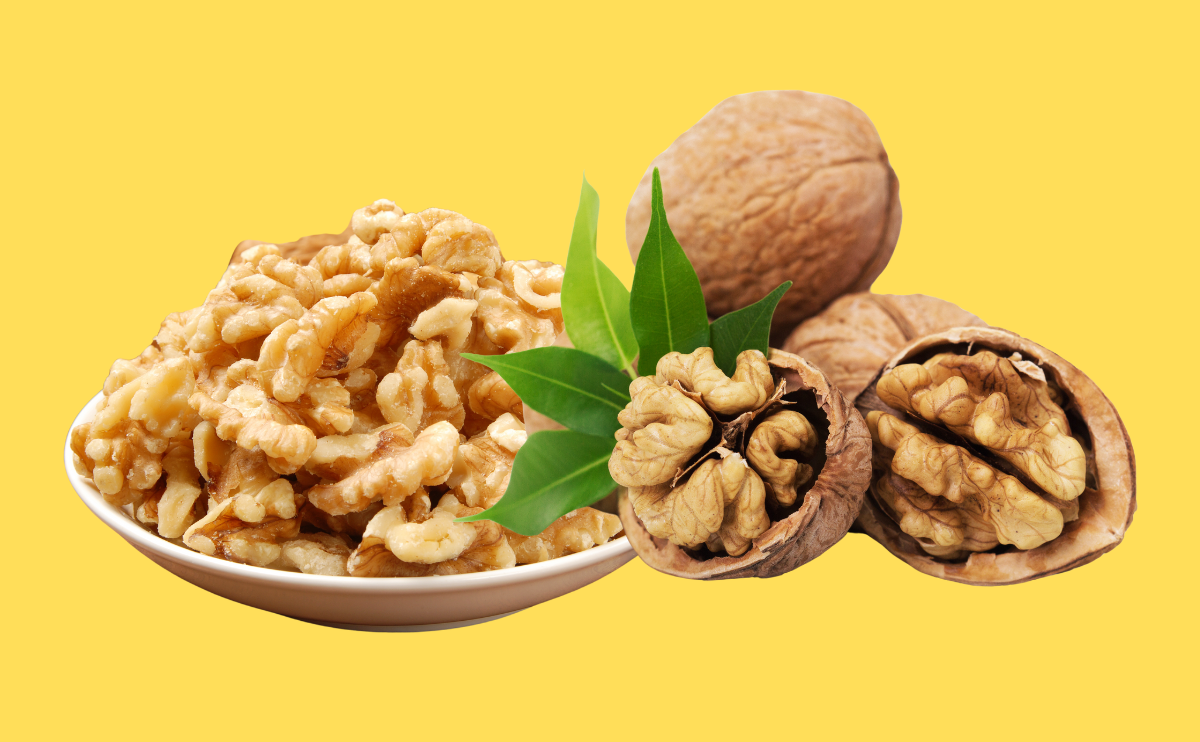Introduction
When we talk about keeping fit, what often comes to mind is pumping iron at the gym or cutting down on the extra carbs. But how often do we think about exercising and feeding our brains—the control center of our body? Not enough, I’d wager. The truth is, brain health is fundamental to our overall well-being, influencing everything from memory and concentration to mood and metabolisms. And guess what? Our diet plays a star role in nurturing our noggin. Enter walnuts—a superfood that might just be the unsung hero your brain deserves every morning.
Walnuts in a Nutshell: If nuts were a kingdom, walnuts would undoubtedly wear the crown. These brain-shaped kernels are not only rich in nutrients but also have a unique composition that sets them apart from the rest.
As we dive deep into the walnut world, we’ll explore how these nuts, especially when consumed on an empty stomach, can turbocharge your brain health and cognitive function. Buckle up for a nutty ride!
The Nutritional Powerhouse: What Makes Walnuts Special?
Ever wondered what the big deal is about walnuts? Let’s break it down:
- Omega-3 Fatty Acids: Walnuts are the top nut for brain health, boasting high levels of alpha-linolenic acid (ALA)—a plant-based omega-3 fatty acid crucial for brain function.
- Antioxidants and Polyphenols: These nifty compounds in walnuts fight against oxidative stress and inflammation, two villains in the story of brain health.
- Minerals and Vitamins: From magnesium to vitamin E, walnuts are stocked with minerals and vitamins that play defense for neuroprotection and cognitive function.
Think of walnuts as your brain’s personal bodyguards, warding off the baddies and keeping your gray matter in tip-top shape.
Eating Walnuts on an Empty Stomach: Why It Matters
Mornings can be a scramble, with the rush to gulp down coffee and maybe shove in a toast. But here’s why you should consider starting your day with walnuts:
- Optimal Nutrient Absorption: On an empty stomach, walnuts don’t have to compete with other foods, making it easier for your body to absorb all those brain-boosting nutrients.
- Kickstarting Your Metabolism: Along with satiating your morning hunger, walnuts get your metabolism humming—a sweet deal for energy levels and brain function.
- The Gut-Brain Axis Connection: Ever heard of the gut being the second brain? Well, walnuts are great for gut health which, in turn, positively affects your brain and mental clarity.
Turns out, walnuts could be the wingman your brain never knew it needed.
Examine the relationship between walnuts and brain function, we consulted with specialists.
Walnut consumption has been linked to improvements in human cognition, memory, attention, and concentration, according to research, according to Dr. Sudhir Kumar, consultant neurologist at Apollo Hospitals in Hyderabad. Additionally, eating walnuts lowers the rate at which mild cognitive impairment progresses to dementia. Walnuts are also believed to reduce the risk of dementia. Eating walnuts is known to elevate mood and lower the chance of developing depression. Five to eight pieces of walnuts a day are thought to be the appropriate amount, according to Dr. Kumar.
- Cognitive Performance and Ageing: Various studies highlight a link between walnut consumption and sharper memory, better cognitive function, and a lower risk of Alzheimer’s.
- Mood and Mental Well-being: Snacking on walnuts may also be akin to a natural antidepressant, aiding in reducing anxiety and depression.
- Brain Volume and Structural Integrity: There’s compelling evidence that regular walnut eaters might just have healthier brains, both in structure and function.
So, if you’re aiming for a brain as fit as a fiddle—walnuts are the way to go.
Practical Tips on Incorporating Walnuts into Your Morning Routine
Making walnuts a morning ritual doesn’t have to be a tough nut to crack. Here’s how you can do it:
- Portion Size and Preparation: A handful of walnuts (about 1/4 cup) is a good start. Whether you like them raw or soaked is your call, just keep it consistent.
- Creating a Habit: Link your walnut-eating ritual with another established morning habit to make it stick. Walnuts with your morning coffee, perhaps?
- Beyond Just Walnuts: Complement your walnut habit with other brain-friendly lifestyle choices like good sleep, hydration, and exercise for amplified benefits.
Who knew tweaking your morning routine could be such a game-changer for brain health?
Summary and Key Takeaways
Let’s circle back to what makes walnuts the superhero of brain health:
- They’re packed with omega-3s, antioxidants, minerals, and vitamins that defend and nurture your brain.
- Eating them on an empty stomach ensures your brain gets first dibs on all these amazing nutrients.
- Scientific evidence confirms the cognitive and mental health benefits of making walnuts a morning staple.
Making walnuts part of your a.m. ritual is a small change that could make a big difference in your brain health over time. Why not give it a crack?
FAQs
Q: How long does it take to see the benefits of eating walnuts on cognitive function?
A: While it varies with individuals, consistent consumption over a few months can start showing positive effects.
Q: Can eating walnuts have any negative effects if consumed on an empty stomach?
A: Most people should be fine, but if you have a sensitive stomach, start with a small amount and see how you fare.
Q: Are there any people who should avoid eating walnuts?
A: Those with walnut allergies or severe nut allergies should steer clear, of course.
Q: Can I eat walnuts in combination with other foods in the morning for the same benefits?
A: Absolutely. While eating them on an empty stomach is ideal for absorption, they are still beneficial however you choose to eat them.
Q: How do walnuts compare to other nuts in terms of brain health?
A: While many nuts have health benefits, walnuts are particularly rich in nutrients essential for brain health, making them stand out.


